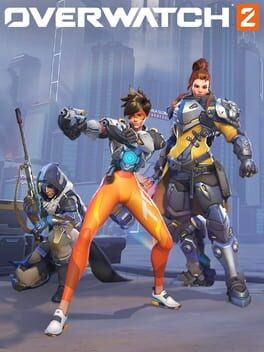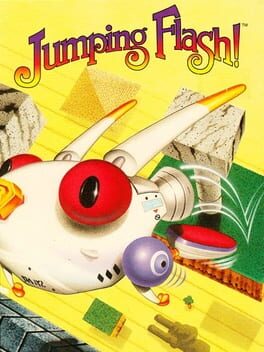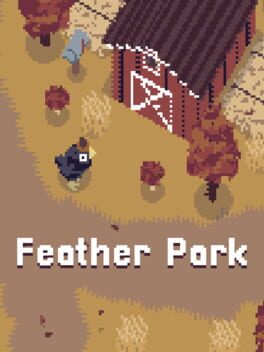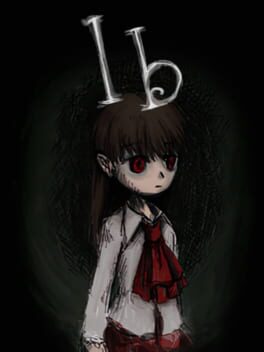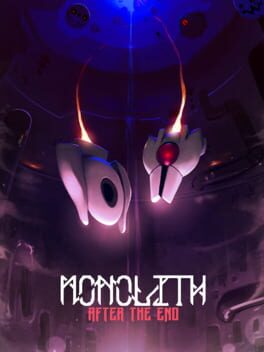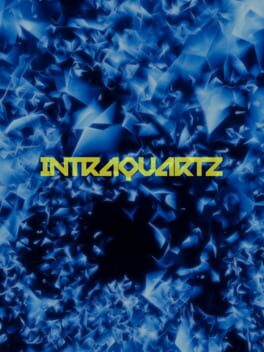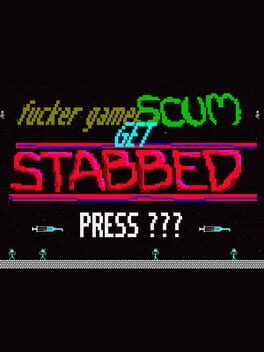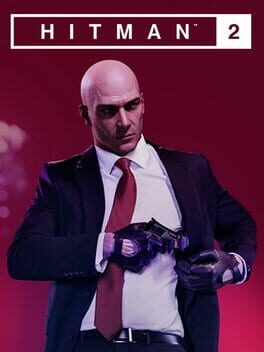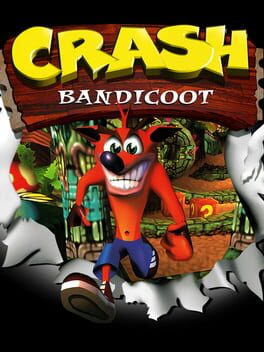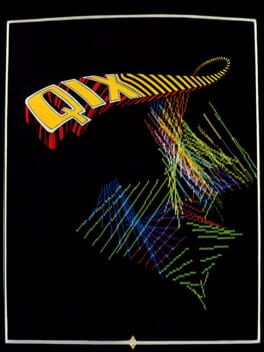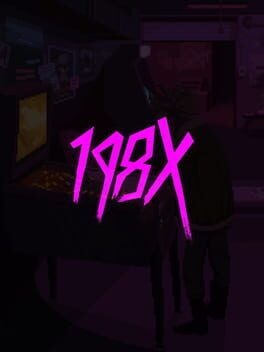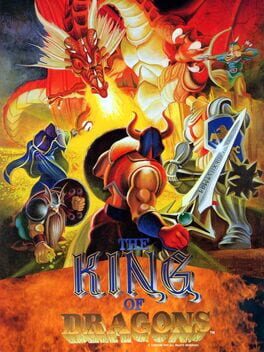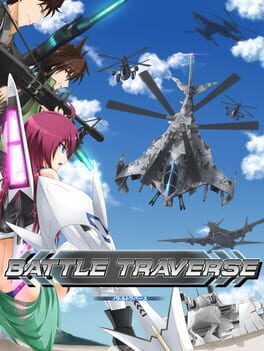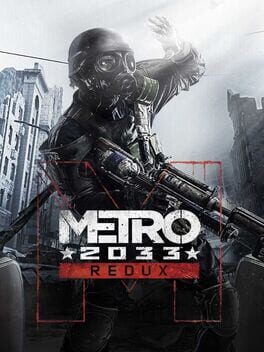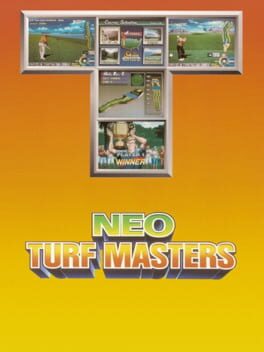Cold_Comfort
393 Reviews liked by Cold_Comfort
Overwatch 2
2023
Jumping Flash!
1995
Feather Park
2022
If a review is a reflection of one's experience with a game, then it only makes sense that my review of Feather Park is a retrospective of my role on it as the sole composer and sound designer.
Since 2012, my raison d'etre was "I want to write music for video games!", and despite hanging around hobbyist circles around it for years, I never really had a real finished game to my name. I could name multiple factors - mental health, poor family life, most likely undiagnosed conditions, so on - but I've watched friends, acquaintances and strangers start from the same sort of place I began at and move on to do the very gigs I would have dreamed to score.
It always crushed me, and I'd be lying if I said I've overcome it for good with this one game. Still, the fact that I can say with complete integrity that "I wrote music for a game!" means a lot to me, as does the fact that Feather Park was the first thing to really break me out of my shell, my mental blockade of not being able to write and complete original music since my last gig, one October ago.
I'll get the gameplay out of the way first. It's a simple game jam game made in two weeks for the 2022 Cozy Autumn Game Jam - you explore a simple overworld (about eight screens), control this hat-wearing bird around to meet other animals, play their minigames or solve miscellaneous tasks to cheer them up and make friends with them. There's no text, and everything's conveyed through audiovisual context, meaning that my role as sound designer was probably a tiny bit more important than usual.
The rock-paper-scissors minigame, for example: you're supposed to figure out which the other animal is going to choose, then deliberately lose to them and give them the win.
With the deadline looming ahead of me (I'd put off sound effects for the most part until the last day of the jam) and reusing sound effects across multiple contexts being the only seemingly viable way to get everything done, maybe it was a little ham-fisted that I gave a stereotypical "incorrect" sound effect for when you, the player, win the game of rock-paper-scissors. Or maybe it's not, and maybe it was helpful that I laid it on thick that actually, winning against this creature is a bad thing.
There aren't any real answers when it comes to sound design, I think - just personal opinions and justifications on how you think your opinions will impact others' experiences. That open-endedness definitely stumped me for a lot of the more abstract sound effects: how do you represent a heart icon popping up, for example?
Music being my primary avenue, not sound, I ended up representing most of the abstract sound effects with musical elements - a jingle on mallet percussions for the heart icon, a guitar slide for question mark popups, and so on. I tend to do this kind of psuedo-Mickey Mousing a lot (my original plan was to have the main character's footsteps sync in time with the music to play a little xylophone sound, but it was too complicated), and it worked out for a silly, cozy cartoony game like this, but I wonder how I'll fare for a game that needs less of that and more synthesized, sci-fi sounds.
Getting to implement the sound effects myself within the game engine definitely helped, though, and it was a learning experience I value a lot. The developer, Jon Topielski, was happy to get me set up with the engine he was using so that I could go into the project myself in order to implement, test and tweak the sounds without going through a game of telephone. (He's a swell guy, really! I can't thank him enough for how everything turned out in the end!)
Not only did this save a lot of time avoiding said telephone game, but it meant I got to be a lot more hands-on in deciding how exactly these sounds were going to play. I felt like a real part of the game development experience, and - if I could do it once, I definitely can and would love to do it again!
Being able to say "I can do sound effects and implementation for your game" is bound to be an asset.
I guess that leaves the music. Following some mental health crises between September and March, and burnout both as a person and as a musician that had accumulated since all the way back in 2018, I spent most of the past year not really directly working on music. Most of what I did do was small experiments, tiny transcriptions and arrangements, mainly to justify the questionable amounts of money I was putting into music creation software as a means of coping with my ennui and anxiety.
It relieves me that just about every single purchase went a long way into helping this soundtrack come to life. Besides some stock percussion, and my live instruments, every single instrument in the soundtrack was from a purchase within the past year: the alto flutes in the main theme; the brush drums in both overworld and minigame themes; the jazz guitar whose sheer character lent itself so obviously to interesting chords that ended up being the backbone to the main theme; the horns on the minigame theme that I still think was the best possible value for something of its quality; even notation software I chose to write the ending theme on instead of on Logic to save myself from writing an entire grand staff piece solely on a piano roll; all of it.
It contextualizes my purchases as an investment, something I've committed to so that I can now just focus on getting the music written the way I want to instead of coveting over tiny, negligible upgrades because I'd chosen to cheap out on my equipment. As long as music's being made with them, I think I'll be alright - and especially as long as I'm writing music for video games with them just like I have here.
I guess I could tell my ten-years-ago self now:
"Hey! You know how you've always wanted to write music for a game? I've done it!"
"It took you so long? And it's just a non-commercial game jam game?"
"I know. I fear I might have taken too long to get here all the time. But I've gotten at least to where I have so far, so from here, I might as well appreciate what progress I've made and promise to myself to go further, as far as I can, and be proud of where I get."
"..."
In April 2013, my nine-years-ago self recorded a record scratch sample. I don't remember where I recorded it from, but I know that I could dig for a higher-quality version of the same sample in one of my virtual synths. On September 22th, I briefly considered doing that - but it would take too much time to look for when a version of the sample was right there in my hands already.
Was this a present I made to myself nine years ago, like a time capsule? A little something to make my life just a tiny bit easier down the road? Who knows. I had no idea where my life was going to be in nine years, and I definitely couldn't imagine it would be where it is now.
"Thanks, Can of Nothing," I said to myself, and inserted "KorgRecordScratch.wav" into the FailedMinigame node.
"I won't let your efforts go to waste. I'll write for more games, I promise."
Since 2012, my raison d'etre was "I want to write music for video games!", and despite hanging around hobbyist circles around it for years, I never really had a real finished game to my name. I could name multiple factors - mental health, poor family life, most likely undiagnosed conditions, so on - but I've watched friends, acquaintances and strangers start from the same sort of place I began at and move on to do the very gigs I would have dreamed to score.
It always crushed me, and I'd be lying if I said I've overcome it for good with this one game. Still, the fact that I can say with complete integrity that "I wrote music for a game!" means a lot to me, as does the fact that Feather Park was the first thing to really break me out of my shell, my mental blockade of not being able to write and complete original music since my last gig, one October ago.
I'll get the gameplay out of the way first. It's a simple game jam game made in two weeks for the 2022 Cozy Autumn Game Jam - you explore a simple overworld (about eight screens), control this hat-wearing bird around to meet other animals, play their minigames or solve miscellaneous tasks to cheer them up and make friends with them. There's no text, and everything's conveyed through audiovisual context, meaning that my role as sound designer was probably a tiny bit more important than usual.
The rock-paper-scissors minigame, for example: you're supposed to figure out which the other animal is going to choose, then deliberately lose to them and give them the win.
With the deadline looming ahead of me (I'd put off sound effects for the most part until the last day of the jam) and reusing sound effects across multiple contexts being the only seemingly viable way to get everything done, maybe it was a little ham-fisted that I gave a stereotypical "incorrect" sound effect for when you, the player, win the game of rock-paper-scissors. Or maybe it's not, and maybe it was helpful that I laid it on thick that actually, winning against this creature is a bad thing.
There aren't any real answers when it comes to sound design, I think - just personal opinions and justifications on how you think your opinions will impact others' experiences. That open-endedness definitely stumped me for a lot of the more abstract sound effects: how do you represent a heart icon popping up, for example?
Music being my primary avenue, not sound, I ended up representing most of the abstract sound effects with musical elements - a jingle on mallet percussions for the heart icon, a guitar slide for question mark popups, and so on. I tend to do this kind of psuedo-Mickey Mousing a lot (my original plan was to have the main character's footsteps sync in time with the music to play a little xylophone sound, but it was too complicated), and it worked out for a silly, cozy cartoony game like this, but I wonder how I'll fare for a game that needs less of that and more synthesized, sci-fi sounds.
Getting to implement the sound effects myself within the game engine definitely helped, though, and it was a learning experience I value a lot. The developer, Jon Topielski, was happy to get me set up with the engine he was using so that I could go into the project myself in order to implement, test and tweak the sounds without going through a game of telephone. (He's a swell guy, really! I can't thank him enough for how everything turned out in the end!)
Not only did this save a lot of time avoiding said telephone game, but it meant I got to be a lot more hands-on in deciding how exactly these sounds were going to play. I felt like a real part of the game development experience, and - if I could do it once, I definitely can and would love to do it again!
Being able to say "I can do sound effects and implementation for your game" is bound to be an asset.
I guess that leaves the music. Following some mental health crises between September and March, and burnout both as a person and as a musician that had accumulated since all the way back in 2018, I spent most of the past year not really directly working on music. Most of what I did do was small experiments, tiny transcriptions and arrangements, mainly to justify the questionable amounts of money I was putting into music creation software as a means of coping with my ennui and anxiety.
It relieves me that just about every single purchase went a long way into helping this soundtrack come to life. Besides some stock percussion, and my live instruments, every single instrument in the soundtrack was from a purchase within the past year: the alto flutes in the main theme; the brush drums in both overworld and minigame themes; the jazz guitar whose sheer character lent itself so obviously to interesting chords that ended up being the backbone to the main theme; the horns on the minigame theme that I still think was the best possible value for something of its quality; even notation software I chose to write the ending theme on instead of on Logic to save myself from writing an entire grand staff piece solely on a piano roll; all of it.
It contextualizes my purchases as an investment, something I've committed to so that I can now just focus on getting the music written the way I want to instead of coveting over tiny, negligible upgrades because I'd chosen to cheap out on my equipment. As long as music's being made with them, I think I'll be alright - and especially as long as I'm writing music for video games with them just like I have here.
I guess I could tell my ten-years-ago self now:
"Hey! You know how you've always wanted to write music for a game? I've done it!"
"It took you so long? And it's just a non-commercial game jam game?"
"I know. I fear I might have taken too long to get here all the time. But I've gotten at least to where I have so far, so from here, I might as well appreciate what progress I've made and promise to myself to go further, as far as I can, and be proud of where I get."
"..."
In April 2013, my nine-years-ago self recorded a record scratch sample. I don't remember where I recorded it from, but I know that I could dig for a higher-quality version of the same sample in one of my virtual synths. On September 22th, I briefly considered doing that - but it would take too much time to look for when a version of the sample was right there in my hands already.
Was this a present I made to myself nine years ago, like a time capsule? A little something to make my life just a tiny bit easier down the road? Who knows. I had no idea where my life was going to be in nine years, and I definitely couldn't imagine it would be where it is now.
"Thanks, Can of Nothing," I said to myself, and inserted "KorgRecordScratch.wav" into the FailedMinigame node.
"I won't let your efforts go to waste. I'll write for more games, I promise."
Ib
2012
Monolith
2017
Intraquartz
2022
if there’s a common element which threads together developer ilzard’s body of work thus far, it’s likely spatial navigation. both words prove relevant. nix umbra immensely complicates its sense of traversal primarily through disorientation and obfuscation. despite the relative frankness of its premise – time-based survival – its mechanics are cloaked enough to ensure that managing to wander undeterred in its shaded woods for even thirteen minutes will comfortably slot you in the top 50 of the title’s global leaderboards. the player’s only choice in nix umbra is to shrewdly maneuver impenetrable darkness, flailing wildly at the binaural screeching of violin strings indicating oncoming threats, and simultaneously attempting to process an occult set of mechanics which intentionally withholds its peculiarities. it’s hard not to reflect on the cosmos while playing, too. obviously traipsing around in pitch-black makes you vaguely feel like you’re navigating some sort of eschatological abyss unknown to man, but one mechanic the game declines to explicate involves using the stars above as a compass guiding you towards health & mana replenishing crystals in the woods. the game’s title translates roughly to “snow shadow” from latin – and as snowfall will occasionally dot the screen, it's difficult not to think of marine snow in the deepest zones of the ocean despite the game’s terrestrial concerns. as above, so below.
intraquartz represents a similar kind of disorienting spatial navigation. it is every bit as concerned with swirling depths as its predecessor is, albeit with a conceit which forces the player to adopt a mindset antithetical to survival in nix umbra. nix umbra’s swift and reactive gameplay recalls the pace of an arena shooter, where daring to stop is flirting with death, but while playing intraquartz it becomes clear that every action taken must be carefully weighed and considered, often for seconds at a time. this is because instead of obscuring your vision to a couple of meters ahead of you as in nix umbra, intraquartz renders every single path within the game’s various crystals completely invisible. nix umbra’s cold, apocalyptic void is substituted for the celestial gossamer of gems, each containing a microscopic, alien, and seemingly expansive inner galaxy. within each gemstone is a complex network of invisible tunnels which spiral endlessly, threatening to fold inwards on themselves. lateral movement is impossible because you take control of a rover, which forces the player to commit to wise decisions, and the player only has a select number of tools to aid them in mining the alien energy present in the crystals: distance-based coordinates, a refracting laser, a limited number of markers, and a limited number of quantum jumps.
so begins the process of orienting oneself and efficiently mapping out the twists and turns of each particular cavern. extracting even one energy core imposes a movement-based time limit on the rover as the crystal begins to destabilize, which incentivizes the player to have a rough outline of the crystal’s inner network before beginning the excavation process. energy cores which seem directly ahead of the player are likely blocked by some invisible wall or tunnel, forcing the intrepid rover to not simply bypass it, but to go under and over and around and then some – each detour is the full nine yards. markers allow for the player to either carefully breadcrumb their way around dizzying and dazzling labyrinths, or to lob shots and test the depths of the tunnels. refracting lasers can be used with surgical precision to reach tucked away energy cores as they perpetually ricochet off walls (a really commendable system given its smooth implementation), and quantum jumps aid in closing gaps that the rover would struggle with otherwise. each tool is perfectly considered and complementary in ways that reveal themselves to the player with each hour invested, and as such intraquartz becomes a game of mastery. the most coveted score for each level involves extracting each energy core without moving the rover, save for quantum jumps – an arduous task for a beginner, but a worthy challenge for the experienced. planning extensively to reach this offers satisfaction like nothing else can provide.
it's really admirable that the procedural generation utilized for the game’s energy cores ensures that this is not a game about strict puzzle solving, but rather a game about adaptive problem solving. there’s an argument to be made that once your brain is attuned to this game’s language it can sometimes feel a bit too much like second nature, but right up until that point it’s one of the most exhilarating games of 2022. at times soothing in its diligent pace, at times heartpounding when facing all-but-certain destabilization, and always an audiovisual tour de force about the worlds in grains of sand.
felt a pleasant sense of mirth when i saw the name of the final level. so excited for ilzard’s third outing!
intraquartz represents a similar kind of disorienting spatial navigation. it is every bit as concerned with swirling depths as its predecessor is, albeit with a conceit which forces the player to adopt a mindset antithetical to survival in nix umbra. nix umbra’s swift and reactive gameplay recalls the pace of an arena shooter, where daring to stop is flirting with death, but while playing intraquartz it becomes clear that every action taken must be carefully weighed and considered, often for seconds at a time. this is because instead of obscuring your vision to a couple of meters ahead of you as in nix umbra, intraquartz renders every single path within the game’s various crystals completely invisible. nix umbra’s cold, apocalyptic void is substituted for the celestial gossamer of gems, each containing a microscopic, alien, and seemingly expansive inner galaxy. within each gemstone is a complex network of invisible tunnels which spiral endlessly, threatening to fold inwards on themselves. lateral movement is impossible because you take control of a rover, which forces the player to commit to wise decisions, and the player only has a select number of tools to aid them in mining the alien energy present in the crystals: distance-based coordinates, a refracting laser, a limited number of markers, and a limited number of quantum jumps.
so begins the process of orienting oneself and efficiently mapping out the twists and turns of each particular cavern. extracting even one energy core imposes a movement-based time limit on the rover as the crystal begins to destabilize, which incentivizes the player to have a rough outline of the crystal’s inner network before beginning the excavation process. energy cores which seem directly ahead of the player are likely blocked by some invisible wall or tunnel, forcing the intrepid rover to not simply bypass it, but to go under and over and around and then some – each detour is the full nine yards. markers allow for the player to either carefully breadcrumb their way around dizzying and dazzling labyrinths, or to lob shots and test the depths of the tunnels. refracting lasers can be used with surgical precision to reach tucked away energy cores as they perpetually ricochet off walls (a really commendable system given its smooth implementation), and quantum jumps aid in closing gaps that the rover would struggle with otherwise. each tool is perfectly considered and complementary in ways that reveal themselves to the player with each hour invested, and as such intraquartz becomes a game of mastery. the most coveted score for each level involves extracting each energy core without moving the rover, save for quantum jumps – an arduous task for a beginner, but a worthy challenge for the experienced. planning extensively to reach this offers satisfaction like nothing else can provide.
it's really admirable that the procedural generation utilized for the game’s energy cores ensures that this is not a game about strict puzzle solving, but rather a game about adaptive problem solving. there’s an argument to be made that once your brain is attuned to this game’s language it can sometimes feel a bit too much like second nature, but right up until that point it’s one of the most exhilarating games of 2022. at times soothing in its diligent pace, at times heartpounding when facing all-but-certain destabilization, and always an audiovisual tour de force about the worlds in grains of sand.
felt a pleasant sense of mirth when i saw the name of the final level. so excited for ilzard’s third outing!
Hitman 2
2018
Crash Bandicoot
1996
Recommended by [maradona as part of this list! ]
As one of the key contributors to the brand identity of Sony’s gaming wheelhouse, Naughty Dog has centered itself as a pillar of prestige gaming, an ideologue pristinely focused on scavenging pop cultural landmarks on a relentless tear to put video games on a creative pedestal, sullying the individuality inherent to the medium in favor of some perceived notion of being considered “art”. Where we find the studio now, aping Indiana Jone’s blockbuster exploits in Uncharted and cutting surface-level highlight reels of post-apocalyptica in The Last of Us, exists primarily as a production house for wannabe-films in the name of cinematic gaming, but tracing back through the history of the developers work shows off a lost pedigree. Severed from the modern image of today, the Naughty Dog of the mid 90s was a beast cut from a different cloth, a proponent of the infamous Mascot Wars that defined the generation.
While the adage doesn't ring true today, the common knowledge of the 90s held that console exclusives and brand identity were the sword and shield brandished by the gaming industry. On the hallowed ground of internet forums, the nu-playground politics of the console war were waged equally in tech specs and pretty faces. By the time Sony entered the fray the battlefield was already established, with Sega and Nintendo locked in an eternal struggle for relevance. Competitors had risen, fallen, and been cast aside, but Sony remained as the last man standing against the twin behemoths. The dual-sided clash saw fit to tear the fate of the console market asunder, rendered desolate in the shockwave of mutually-assured destruction… Until he, the bearer of Sony’s curse, rose from primordial depths. Branded with the mark of enmity, the flag-bearer of PlayStation’s campaign cast a mocking shadow over the decade. Born into strife, with the serrated edge of the attitude era gripped tightly in his paw, Crash Bandicoot dug into his trench, grubby paws grasping for cultural leverage.
Mel Blanc-ian, a comic centerpiece made as much as a figurehead, Crash was the perfect scapegoat, an idol to cherish and ridicule in equal measure. A jester on the battleground of the modern technobandit, the mascot of yore breathed life into the indefinite scuffle that is brand identity. Becoming synonymous with genres and companies all their own, mascots, especially those in the realm of the mascot platformer, became analogous for not only the series and franchises they encompassed, but for the consoles they inhabited as well. Sega had Sonic, Nintendo had Mario, and Sony, fresh out the gate, had Crash Bandicoot, the mass-production beast forged by the wreckage of a thousand prototypes. The role, aside from poking fun at corporate rivals, was purely accessory, but as touchstones in the memories forged in the scorched earth of Gamefaqs forums, the mascot became an inescapable notion.
Years have since passed, and the Mascot Wars have drawn to the close. While some, the ever stalwart, cling to delusions of supremacy, the giants of the conflict settled into uneasy truces. With the three leaders co-mingling, interweaving, the tribalism of the past decades remains spoken in hushed whispers. Sega's great defeat in the Summer of 2001 saw the colossus fall, not by Nintendo's hand, or even by Microsoft's emerald super-soldier, but at the blade of Sony's masterwork, the PlayStation 2. With the fall of the esteemed leader, the war flickered, faded and died. However, for every victory, the heroes of the past are just as easily forgotten: with success coordinated in equal part by masters of tactical espionage and gods of war, the mascots that defined history were brushed away, hardened cynicism overtaking the endearing face of plucky spirit. Crash, Sly, Croc, even the maligned Gex, all shunned by the tides of time.
The era defined by the mascot has long since passed. Yes, false idols clammer to the throne, halls besieged by Hat Kids and Yooka-Laylees, but the original generation has faded, gussied up only to be showboated in recollections and remasterings. The soul, flickering against the growing cynicism of the game industry, now rests as post-ironic detached nostalgia.
…none of this has anything to do with the actual game of Crash Bandicoot, and that’s because there’s very little to say about Crash Bandicoot. Like any property in the 90s that uses the aesthetics of tribal villages, shockingly racist! Literally my only comment on the content of the game itself. ¯\(ツ)/¯
As one of the key contributors to the brand identity of Sony’s gaming wheelhouse, Naughty Dog has centered itself as a pillar of prestige gaming, an ideologue pristinely focused on scavenging pop cultural landmarks on a relentless tear to put video games on a creative pedestal, sullying the individuality inherent to the medium in favor of some perceived notion of being considered “art”. Where we find the studio now, aping Indiana Jone’s blockbuster exploits in Uncharted and cutting surface-level highlight reels of post-apocalyptica in The Last of Us, exists primarily as a production house for wannabe-films in the name of cinematic gaming, but tracing back through the history of the developers work shows off a lost pedigree. Severed from the modern image of today, the Naughty Dog of the mid 90s was a beast cut from a different cloth, a proponent of the infamous Mascot Wars that defined the generation.
While the adage doesn't ring true today, the common knowledge of the 90s held that console exclusives and brand identity were the sword and shield brandished by the gaming industry. On the hallowed ground of internet forums, the nu-playground politics of the console war were waged equally in tech specs and pretty faces. By the time Sony entered the fray the battlefield was already established, with Sega and Nintendo locked in an eternal struggle for relevance. Competitors had risen, fallen, and been cast aside, but Sony remained as the last man standing against the twin behemoths. The dual-sided clash saw fit to tear the fate of the console market asunder, rendered desolate in the shockwave of mutually-assured destruction… Until he, the bearer of Sony’s curse, rose from primordial depths. Branded with the mark of enmity, the flag-bearer of PlayStation’s campaign cast a mocking shadow over the decade. Born into strife, with the serrated edge of the attitude era gripped tightly in his paw, Crash Bandicoot dug into his trench, grubby paws grasping for cultural leverage.
Mel Blanc-ian, a comic centerpiece made as much as a figurehead, Crash was the perfect scapegoat, an idol to cherish and ridicule in equal measure. A jester on the battleground of the modern technobandit, the mascot of yore breathed life into the indefinite scuffle that is brand identity. Becoming synonymous with genres and companies all their own, mascots, especially those in the realm of the mascot platformer, became analogous for not only the series and franchises they encompassed, but for the consoles they inhabited as well. Sega had Sonic, Nintendo had Mario, and Sony, fresh out the gate, had Crash Bandicoot, the mass-production beast forged by the wreckage of a thousand prototypes. The role, aside from poking fun at corporate rivals, was purely accessory, but as touchstones in the memories forged in the scorched earth of Gamefaqs forums, the mascot became an inescapable notion.
Years have since passed, and the Mascot Wars have drawn to the close. While some, the ever stalwart, cling to delusions of supremacy, the giants of the conflict settled into uneasy truces. With the three leaders co-mingling, interweaving, the tribalism of the past decades remains spoken in hushed whispers. Sega's great defeat in the Summer of 2001 saw the colossus fall, not by Nintendo's hand, or even by Microsoft's emerald super-soldier, but at the blade of Sony's masterwork, the PlayStation 2. With the fall of the esteemed leader, the war flickered, faded and died. However, for every victory, the heroes of the past are just as easily forgotten: with success coordinated in equal part by masters of tactical espionage and gods of war, the mascots that defined history were brushed away, hardened cynicism overtaking the endearing face of plucky spirit. Crash, Sly, Croc, even the maligned Gex, all shunned by the tides of time.
The era defined by the mascot has long since passed. Yes, false idols clammer to the throne, halls besieged by Hat Kids and Yooka-Laylees, but the original generation has faded, gussied up only to be showboated in recollections and remasterings. The soul, flickering against the growing cynicism of the game industry, now rests as post-ironic detached nostalgia.
…none of this has anything to do with the actual game of Crash Bandicoot, and that’s because there’s very little to say about Crash Bandicoot. Like any property in the 90s that uses the aesthetics of tribal villages, shockingly racist! Literally my only comment on the content of the game itself. ¯\(ツ)/¯
Qix
1981
One thing I've noticed with the console ports of Qix is that they all seem to have kickass title music.
NES: https://youtu.be/6eggpUSbGRo
Amiga: https://youtu.be/tGgVYh6yXk8
C64: https://youtu.be/ki_9rsCJ-HU (Two Tim Follin jumpscares in a row!)
Meanwhile the arcade game seems to sound like a robot gargling liquid hydrogen. I'm sure if I heard it coming from the actual cabinet it would sound cool, but hearing it on headphones sounds funny. I'm very sorry. Love the Game Boy version of it though.
NES: https://youtu.be/6eggpUSbGRo
Amiga: https://youtu.be/tGgVYh6yXk8
C64: https://youtu.be/ki_9rsCJ-HU (Two Tim Follin jumpscares in a row!)
Meanwhile the arcade game seems to sound like a robot gargling liquid hydrogen. I'm sure if I heard it coming from the actual cabinet it would sound cool, but hearing it on headphones sounds funny. I'm very sorry. Love the Game Boy version of it though.
198X
2019
The King of Dragons
1991
Battle Traverse
2015
Game recommended by Cold_Comfort on my Recommend me something pls list (1/39)
This one is not a surprise by any means - being quite a big fan of shmups and sitting in various communities of this genre, i've heard about this title a lot of times, being proclaimed as one of those "hidden dlsite gems" (if you don't know, dlsite is a japanese website where devs sell doujin games and porn), alongside stuff like Cambria Sword, ring^-27, Stellavanity (known also for various dramas i won't get into in this review, sorry) and Ikusaaaaaaan! (the number of "a"s is important, don't forget about that). Admittevely, the first look may be disappointing, because sprites look like you put RPG Maker characters into a shmup and the enemies are all various planes, drones, helicopters, etc. with some weird sizes comparing to main character.
But you kinda forget that once you play it (or at least look into the patterns instead of enemies). The game feels like Progear and Ketsui had a baby (a threesome with RPG Maker????), throwing at you loads of enemies shooting at you with either aimed shots or various interesting patterns. The scoring is basically using shot for getting items and lock-on for cashing with some proximity bonus (Ketsui), but also bullet cancelling (Progear). It has three characters to choose from - slow guy, fast guy and a girl (I played as a fast guy, but maybe you'll like one of the other two more) The pacing is also really good, there are almost no wait zones outside of just before the boss or killing the midboss. Boss fights aren't bad either, with fair, but not "free" patterns. Even has some stuff for more experienced players like harder difficulties if you thought Hard isn't easy enough (To be honest i cleared it with 3 lives in stock so maybe that suggests something) or second loop with TLB if you score enough (I didn't so maybe i'm still a scrub).
tl;dr It's just really fun to dodge through this and get a lot of points. Also, if Hard is too hard (hehe) for you, Normal is way easier and more approachable difficulty.
PS. Yeah, the music doesn't really fit much (even if I like boss theme a little), but what party is going on Stage 4 based on this theme?
Also yeah, I know, 9 months since i started that recommeding list and I started playing games from it just now. I hope I'll get through all the other ones faster (and of course, each one with the review).
This one is not a surprise by any means - being quite a big fan of shmups and sitting in various communities of this genre, i've heard about this title a lot of times, being proclaimed as one of those "hidden dlsite gems" (if you don't know, dlsite is a japanese website where devs sell doujin games and porn), alongside stuff like Cambria Sword, ring^-27, Stellavanity (known also for various dramas i won't get into in this review, sorry) and Ikusaaaaaaan! (the number of "a"s is important, don't forget about that). Admittevely, the first look may be disappointing, because sprites look like you put RPG Maker characters into a shmup and the enemies are all various planes, drones, helicopters, etc. with some weird sizes comparing to main character.
But you kinda forget that once you play it (or at least look into the patterns instead of enemies). The game feels like Progear and Ketsui had a baby (a threesome with RPG Maker????), throwing at you loads of enemies shooting at you with either aimed shots or various interesting patterns. The scoring is basically using shot for getting items and lock-on for cashing with some proximity bonus (Ketsui), but also bullet cancelling (Progear). It has three characters to choose from - slow guy, fast guy and a girl (I played as a fast guy, but maybe you'll like one of the other two more) The pacing is also really good, there are almost no wait zones outside of just before the boss or killing the midboss. Boss fights aren't bad either, with fair, but not "free" patterns. Even has some stuff for more experienced players like harder difficulties if you thought Hard isn't easy enough (To be honest i cleared it with 3 lives in stock so maybe that suggests something) or second loop with TLB if you score enough (I didn't so maybe i'm still a scrub).
tl;dr It's just really fun to dodge through this and get a lot of points. Also, if Hard is too hard (hehe) for you, Normal is way easier and more approachable difficulty.
PS. Yeah, the music doesn't really fit much (even if I like boss theme a little), but what party is going on Stage 4 based on this theme?
Also yeah, I know, 9 months since i started that recommeding list and I started playing games from it just now. I hope I'll get through all the other ones faster (and of course, each one with the review).
Metro 2033 Redux
2014
FPS adaptation of the novel of the same name by Dmitry Glukhovsky. Not great as an adaptation with many of the book's facets either glossed over or missing completely. Presentation of the story was not enjoyable in my opinion, and I can't say I like silent protagonist Artyom. Gameplay is on the better side of OK, run of the mill 7th gen shooter. Atmosphere/vibe when there's no dialogue and it's just ambience is best. Good pick if you're a fan of Stalker. Would recommend picking up the book for the more complete experience.
Neo Turf Masters
1996
Backloggd tournament results according to a mischievous wizard:
Detchibe: The enlightened all-rounder. Are you so profoundly arrogant to believe "balance" can find you here? The fence is O.B., friend.
Crystal: The word "Scoundrel" clings to you like a dying lover. Slave to a thousand metas - Power, to you, is not a means but an end. People talk about you behind your back, but what is the gossip of worms to an Eagle?
Squigglydot: You have the unenviable position of trying to hide your Neo Turf power level. Certainly one to watch. The Hustle Calls.
Vee: Golf isn't as important to you as having dreadlocks. You hope if you can crack enough jokes in your life you can stop being the punchline for a moment.
Cold: Gamer's Choice. You can try to powergame, but at least Crystal can up there can back it up.
Maradona: A serial fuckup. And that's fair dinkum. You concede before ball meets fairway - but knowing you must eventually 'give up this hole' doesn't make it any easier, mate.
Detchibe: The enlightened all-rounder. Are you so profoundly arrogant to believe "balance" can find you here? The fence is O.B., friend.
Crystal: The word "Scoundrel" clings to you like a dying lover. Slave to a thousand metas - Power, to you, is not a means but an end. People talk about you behind your back, but what is the gossip of worms to an Eagle?
Squigglydot: You have the unenviable position of trying to hide your Neo Turf power level. Certainly one to watch. The Hustle Calls.
Vee: Golf isn't as important to you as having dreadlocks. You hope if you can crack enough jokes in your life you can stop being the punchline for a moment.
Cold: Gamer's Choice. You can try to powergame, but at least Crystal can up there can back it up.
Maradona: A serial fuckup. And that's fair dinkum. You concede before ball meets fairway - but knowing you must eventually 'give up this hole' doesn't make it any easier, mate.
